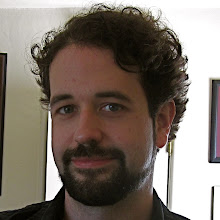I came to understand that assessments that came at the end of a unit—although important manifestations of student knowledge, understanding, and skill—were less useful to me as a teacher than were assessments that occurred during a unit of study. By the time I gave and graded a final assessment, we were already moving on to a new topic or unit. There was only a limited amount I could do at that stage with information that revealed to me that some students fell short of mastering essential outcomes—or that others had likely been bored senseless by instruction that focused on outcomes they had mastered long before the unit had begun. When I studied student work in the course of a unit, however, I could do many things to support or extend student learning. I began to be a devotee of formative assessment, although I did not know that term for many years.The idea of checking on student knowledge before and during a unit, as well as after it, is a good one that I'll definitely want to incorporate into my teaching plans. I also like the idea of giving students different ways to demonstrate mastery of the material, though it will be a challenge to make sure that these different approaches are both consistent and fair.
Teaching in the hard sciences is both reassuring and frustrating when thinking about assessment: the facts are what they are (to the best of our knowledge), and there are certain key concepts that the student must understand in order to be competent with the material, just as a student in mathematics must demonstrate mastery of arithmetic and algebra before going on to more advanced topics. While one might be able to devise different ways of presenting mastery that play to the different students' strengths, ultimately a successful biology student must understand how evolution works, how a cell is put together, how metabolism is carried out, how homeostasis is maintained, etc. This isn't like English, where a student may express himself poorly in oral presentations but perform brilliantly in writing fiction. Science is integrative, and if you don't understand the basic concepts you won't be able to grasp the higher ones.
I can appreciate Ms. Tomlinson's comment about "accentuat[ing] student positives rather than negatives," but we also have to be on guard against imbalanced learning: if a student focuses all of his efforts on an area of the material that he is already proficient at, he isn't going to learn as much as he could, and his weaknesses in other areas will continue to hinder him when it becomes necessary to use those areas of knowledge. America is lagging behind the rest of the developed world on science education; too many students are failing to learn the fundamentals. While I can agree that student confidence is important to facilitate learning, I'd like to see this process of "accentuating student positives" in action to make sure that the students are still learning everything that they need to learn. Sometimes the only way a student knows whether he really understands a concept is when he's tested on it; as a wise man once said, The purpose of the test is to reveal the student to the student, not to reveal the student to the master. The teacher may well be able to discern all sorts of things about the student throughout the course of instruction, but ultimately the student has to demonstrate to himself that he knows what he's doing. I'd like to hear more about Ms. Tomlinson's approach -- in specific, practical application -- to be sure that the students are really leaving the class knowing everything that they need to know.

2 comments:
Hmmm... your comment here made me think about our conversation on the phone, where you talked about "doing science"-- i.e., going out, testing hypotheses, refining, revising, retesting, etc. This approach is very different than the standard paper-and-pencil test, and I'm wondering which would show a student (and his/her teacher) more about what he/she had learned. It also made me think about what we really want students do know or be able to do as a result of their experience in our classes, and what assessment tool best moves toward that goal?
My only concern is that some students may freak out on some level, perceiving they are being tested on a unit before the learning of that unit is complete. This could be fixed in how the assessment is framed and letting the students know what is expected of them is only X and no more.
Post a Comment